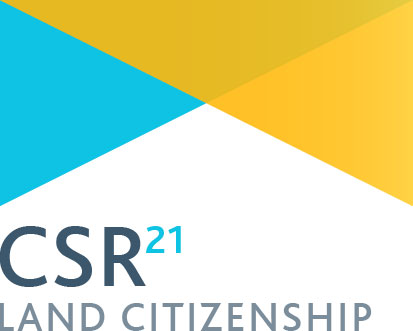
Supply chain risk: engaging with human rights is crucial
We’ve come across an interesting piece posted recently on the CSR Asia blog, reflecting on a period of weeks spent interviewing businesses about human rights, human trafficking and contemporary slavery.
This research was undertaken as part of a programme of work with Oxfam around increasing businesses’ involvement with their supply chains - famously a big and current issue in the extractive industries, of course. The depressing conclusion: “It has become increasingly clear that in many industries, deep down supply chains where auditors rarely visit, there are many examples of human rights abuses.”
Accompanying research on land issues also highlighted human rights abuses associated with land grabs: “In many cases,” the piece says, “human rights violations such as these feed directly into the value chains of large brand name companies.”
The author highlights a concern that while many companies are meeting these challenges head on, others “are essentially shirking their corporate social responsibilities.” It’s an interesting insight: based on interviews with managers, The author taxonomises common reasons presented for this. These run as follows - and it doesn’t take much in the way of imagination, or even much more than a basic appetite for the industry news, to see the same thinking manifested in the extractives:
- Denying that there is a problem
- Engaging in human right issues means admitting that there is a problem
- Arguing that current initiatives have the problem covered
- Feeling helpless to act
- Shifting the responsibility for the problem
- Engaging in human rights issues will attract the attention of aggressive NGOs
Thankkfully, rather than simply expose and lament this issue, the piece also provides a basic framework for companies’ efforts to “accept the problem, recognise the risk and act”:
- Assessing human rights risks along the supply chain and how they can impact on products, brands, reputation and legislative requirements
- Accepting that there is no easy solution to dealing with human rights violations deep down supply chains, but that ignoring them is not an option
- Engaging with industry-wide initiatives that can begin to examine the root causes of human rights abuses and begin to work on common standards and initiatives to mitigate the risks associated with modern day slavery
- Partnering with the NGO community where significant expertise on human rights issues exist and begin working on solutions to dealing with the underlying causes of modern day slavery (including poverty, discrimination, refugees and vulnerable groups)
- Being part of a wider movement on protecting the human rights of vulnerable people and advocating for more effective responses from governments and other regulatory agencies
As the piece points out, “where human trafficking and other forms of human rights abuses are found deep down supply chains the solutions are far from clear”; but there is a growing momentum behind efforts all around the world to face up to the need to find them just the same. A wider recognition of the need to engage with this risk is going to be key to the evolution of the sector.
ENDS
https://csr-asia.com/csr-asia-weekly-news-detail.php?id=12401
https://www.csr21.org/news/geopolitical/fascinating-take-violence-dodd-fr...





